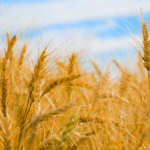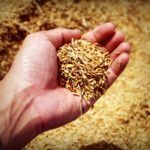EU instruments helping farmers to insure their income against falling prices and production losses have only partially met their objectives, and their uptake remains low and uneven, according to a new report from the European Court of Auditors. In addition, some exceptional measures have not been properly targeted and can lead to disproportionate compensation payments, say the auditors.
The EU’s common agricultural policy (CAP) contains a range of measures whose purpose is to guarantee a stable and adequate income for farmers. Direct payments to the 6.4 million farmers in the 28 Member States account for €41 billion a year. Alongside these direct payments, the CAP includes specific instruments for preventing and managing risks and crises in the agricultural sector. For example, insurance and mutual funds can be used to stabilise farm income. There are also exceptional measures which are intended to stabilise the market as a whole in the event of serious disturbance, such as when Russia decided in 2014 to ban certain agricultural imports from the EU.
The auditors looked specifically at whether these tools had been implemented efficiently and were delivering results. They focused in particular on the EU’s support for insurance and the exceptional measures introduced for the fruit and vegetables sector following the 2014 Russian sanctions.
The auditors acknowledge that the CAP contains a variety of income safeguards. Direct payments play a significant role in this regard. On average, they account for a quarter of farm income, allowing farmers to cope better with failing prices or lower production, and thus reducing their need to insure. At the same time, the CAP increasingly promotes preventive measures, especially by encouraging farmers to adopt good agricultural and environmental practices. The auditors found, however, that this activity has little impact on farmers’ behaviour, since insured farmers may have less incentive to apply a resilient business strategy or adapt to climate change.
Most of the €2.6 billion which the EU has budgeted to help farmers insure against price volatility and production losses has had little impact, the auditors say. The money reaches a very small share of farmers, as fewer than 10 % of those who insure do so with EU support. Most farmers do not even consider mitigating risk as they expect to receive substantial public aid anyway in case of a crisis. In addition, EU support for insurance is not channelled to those in real need. In the two Member States making most use of it (Italy and France), the auditors observed a concentration in the wine sector. In this sector, where insured capital can reach €115 000 per hectare, many beneficiaries, given their financial capacity and risk profile, would have insured their production even without EU subsidies.






Leave a Reply